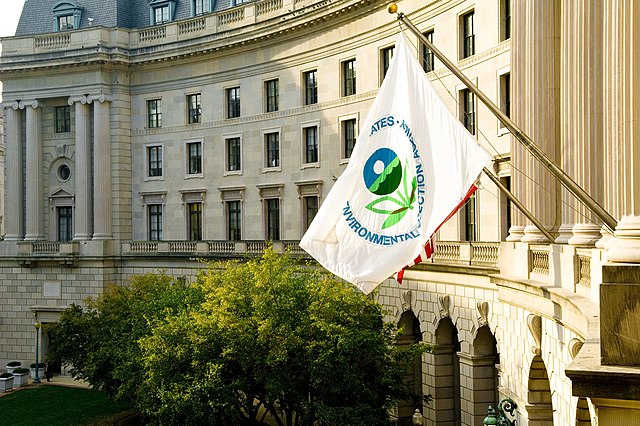In a recent delegation of power over climate regulation, Biden’s executive branch is denying its power to make an impact on issues affecting constituents’ everyday lives.
This newsletter was originally published on our Substack. Read and subscribe here.
In late December, the U.S. Environmental Protection Agency (EPA) granted Louisiana primary authority to approve permits for carbon capture and sequestration (CCS) wells in the state, making Louisiana the third state to gain such authority. The delegation of this authority—which has been applauded by such notorious pollution enablers as the American Petroleum Institute, the Louisiana Oil and Gas Association, and other mouthpieces of the oil and gas industry—comes as the EPA faces a backlog of permit applications from Louisiana-based companies, many of them fossil fuel companies, to use wells for CCS purposes.
The EPA’s decision is concerning for a number of reasons, not just the fact that CCS technologies remain untested and, despite the claims of its oil-and-gas backed proponents, unproven. Louisiana has a sordid track record on environmental issues, yet the EPA has a strange pattern of abdicating its authorities and oversight responsibilities related to Louisiana-specific environmental issues.
Experts maintain that CCS is an unproven science at scale, as we noted in our Hydrogen Industry Agenda report. While proponents of CCS argue that capturing carbon and storing it underground might mitigate the planet-warming impacts of carbon dioxide released by processes like burning fossil fuels (and producing non-renewable-powered hydrogen gas), critics point out that there is no conclusive evidence that CCS technology will work long-term, and that potential side effects of storing carbon underground may include earthquakes and the pollution of groundwater.
Furthermore, the state of Louisiana has a long history of failing to effectively regulate both the corporations contributing to climate collapse and those effectively poisoning the state’s environment and its public. Louisiana’s famous “Cancer Alley,” a region containing over 200 petrochemical facilities and accounting for over 25% of petrochemical production in the U.S., has continued to welcome new facilities poisoning the air in predominantly Black communities with cancer-causing chemicals. Poor regulation of pollution in the state, among other failures to crack down on fossil fuel industry abuses, have contributed to Louisiana having the highest level of air pollution of any state in the US, by some measures.
Under the leadership of conservative Governor-elect Jeff Landry, things are poised to continue deteriorating. Permit applications for Class VI wells will be reviewed by the Louisiana Department of Natural Resources, which will soon be headed by former oil and gas industry executive Tyler Gray. (The state’s other main environmental regulator, the Department of Environmental Quality, will be helmed by Trump administration alum and former Monsanto executive Aurelia Giacometto.)
Finally, the EPA’s delegation of authority in this case is an eerie echo of their June decision to drop their investigation into abounding allegations of environmental racism by the state. At the time, advocates questioned the efficacy and timing of EPA’s withdrawal, considering it happened just as Louisiana seemed poised to make concessions in line with EPA guidance.
Against this backdrop, the EPA’s decision to delegate authority to the state does not inspire confidence that permits for CCS projects will be reviewed with Louisiana residents’ health and safety in mind. Or at least, not prioritized over the profit-seeking fervor of Louisiana-based corporations.
While the appropriate resourcing and staffing of federal regulatory agencies is always a concern in ensuring the efficacious enforcement of environmental law and policy, it’s also imperative that Biden’s executive branch take its role in protecting Americans from dangerous and polluting industries seriously. Delegating authority over the permitting of an untested and widely criticized climate mitigation technology to a department infamous for its disregard for people and planet and soon to be headed by a former fossil fuel executive is reckless at best and insidious at worst.
There’s a reason it is named the “Environmental” Protection Agency, not the Profit Protection Agency. Biden’s EPA should be fighting corporate greed, working to unsettle revolving door influence in environmental policy, and prioritizing the protection of the public. Instead, Biden’s EPA chose the Trump-like path of unnecessarily empowering a state department with a long legacy of near the exact opposite. Particularly with more climate regulation fights on the horizon—like the implementation of the Treasury Department’s recently released guidance on the 45V “clean hydrogen” tax credit—the Biden administration must remain steadfast in its stated goals of protecting constituents from corporate excesses.
Follow the Revolving Door Project’s work on whatever platform works for you! You can find us on that website formerly known as Twitter, Bluesky, Instagram, and Facebook.
Want more? Check out some of the pieces that we have published or contributed research or thoughts to in the last week:
Glossary of Useful Federal Budget Terms
Our Take on the Federal Budget Mess
Independent Agency Spotlight Update January 2024
Democrats Could Score Big by Blocking This Revolver
Shame on WSJ for Distorting Seniors’ Economic Well-Being to Push Social Security Cuts
Democrats Could Score Big by Blocking This Revolver
Biden Urged to Use Obscure Law to Thwart Pacific Northwest Pipeline Expansion
Nancy Pelosi’s 2023 Stock Portfolio Performed Exceptionally Well
Requests in FOIAengine Show Groups Watching the FTC
Big Green? The clean energy leader enraging environmentalists
What Biden Needs to Do in the Next 12 Months to Save the Climate
Former DCG advisor Larry Summers on list of Jeffrey Epstein’s ‘Harvard friends’
Nancy Pelosi’s 2023 trading gains top 65%, boosted by stock options: report

